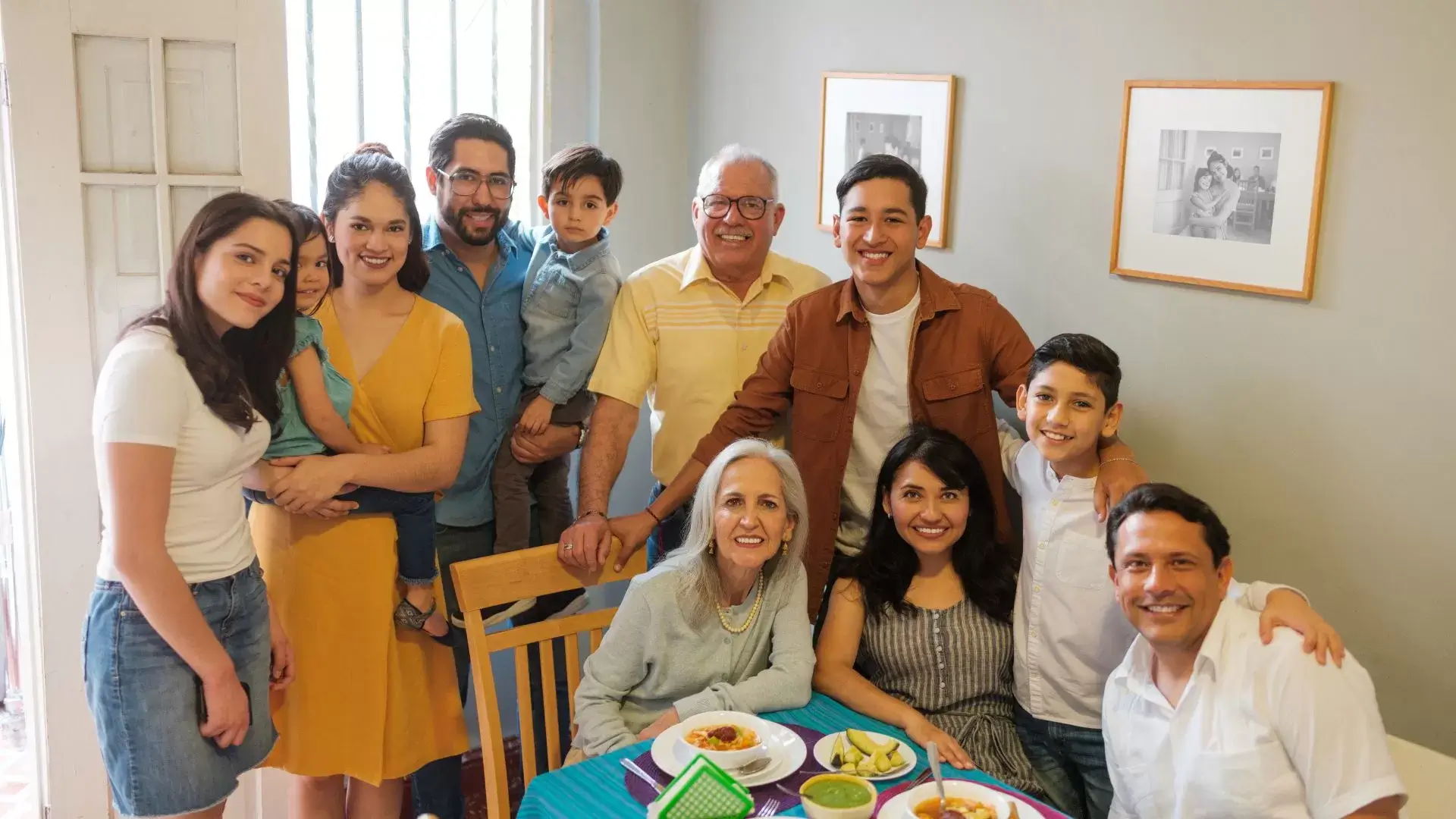Family Systems Therapy
Family Systems Therapy is a collaborative approach that helps us understand how our family dynamics influence our emotional well-being. By focusing on the relationships and interactions within the family, we can identify patterns that may contribute to conflict or anxiety. This therapy encourages open communication, empathy, and understanding, allowing us to resolve misunderstandings constructively.
We also learn to recognize the impact of intergenerational patterns and trauma on our current relationships. Through this journey, we can strengthen our emotional bonds and create a supportive environment. If we take a closer look, we’ll uncover even more insights about enhancing our family connections.

About Our Psychotherapy Counseling Services
At our practice, we recognize that seeking help is a brave step, and we’re here to provide compassionate psychotherapy counseling services tailored to your family’s unique needs. We acknowledge that family dynamics can be complex, and we’re committed to helping you navigate these challenges through family systems therapy.
Our approach focuses on enhancing family relationships by examining family roles and the emotional bonds in families. We believe that effective family communication is the cornerstone for creating a supportive atmosphere. Through our family counseling sessions, we aim to facilitate open discussions that promote understanding and empathy among family members.
We also emphasize family conflict resolution, equipping families with the tools necessary to address disagreements constructively. By fostering resilience, we help families develop strategies to cope with stressors and strengthen their connections.
Together, we’ll explore your family’s unique situation and work collaboratively towards achieving healthier dynamics. Our goal is to create a safe and nurturing environment where every family member feels heard and valued, ultimately enhancing the overall well-being of your family. Let’s initiate this journey together, building a foundation for lasting emotional bonds.
Understanding the Core Principles of Systemic Therapy
Systemic therapy is built on the understanding that individuals are deeply influenced by their relationships and the broader family dynamics surrounding them. By examining family structure and functioning, we can uncover how relational patterns shape our experiences. One core principle of systemic therapy, rooted in Bowen theory, is the differentiation of self. This concept encourages us to maintain our individuality while staying connected to our family, promoting healthier emotional interactions.
We often encounter emotional triangles, where two people pull in a third to manage anxiety or conflict. Recognizing these triangles can help us understand the underlying family dynamics at play and address relational patterns that contribute to stress. Additionally, we look closely at family communication patterns, as they greatly impact how family stressors are handled and resolved.
Through systemic therapy, we work collaboratively to identify and navigate these complexities, fostering healthier relationships and improved family functioning. By doing so, we create a supportive environment where each member can thrive, ultimately leading to a deeper understanding of ourselves and each other. Together, we can embrace the challenges of family life, transforming them into opportunities for growth and connection.
Exploring Family Dynamics and Interactions
Understanding how family dynamics and interactions shape our experiences can enhance our ability to foster healthier relationships and navigate conflicts more effectively. By exploring these dynamics, we can identify how our family roles influence our emotional bonds and overall family well-being. Each family member contributes to the family system, and recognizing these contributions helps us understand relational dynamics.
In therapy, we often look at how family interactions reflect unique communication styles. These styles can either promote family cohesion or create barriers to effective conflict management. When we’re aware of these patterns, we can engage in conversations that strengthen our connections rather than weaken them.
Additionally, examining family roles in therapy allows us to see how each member’s behavior impacts the family unit. By fostering empathy and collaboration, we can shift our perspectives and improve our interactions. Ultimately, understanding family dynamics equips us with tools to enhance our emotional bonds, leading to a healthier family environment. Together, we can work towards cultivating a more supportive and resilient family system, where each member feels valued and understood.

The Role of Communication Styles in Family Relationships
Effective communication styles can greatly shape our family relationships, influencing how we connect, resolve conflicts, and support one another. By understanding our family communication dynamics, we can identify intergenerational patterns that may affect our interactions today. Recognizing these family behavior patterns allows us to implement systemic interventions that foster healthier communication.
In relational therapy, we often explore emotional regulation and how it intertwines with family attachment. When we communicate openly and empathetically, we not only strengthen our bonds but also enhance our ability to manage family stress. By sharing our family narratives, we create a shared understanding that promotes family unity.
It’s essential for us to practice active listening and validate each other’s feelings, as this builds a supportive environment. Over time, these positive communication styles can transform the way we relate to one another, paving the way for deeper connections.
Ultimately, by being mindful of our communication patterns, we can cultivate a nurturing atmosphere that encourages growth and resilience. Together, we can foster stronger relationships, paving the way for a healthier family dynamic that embraces both challenges and joys.
Addressing Family Conflict and Resolution Strategies
Frequent family conflicts can arise from misunderstandings, but by working together, we can develop constructive resolution strategies that strengthen our relationships. In family therapy sessions, we can engage in family problem-solving that focuses on our unique family dynamics. By evaluating our strengths and weaknesses, we can identify areas where we might need to establish clearer family boundaries.
During moments of conflict, it’s crucial to remember that we’re all part of the same system. Utilizing systemic approaches allows us to view our interactions in a broader context, which can lead to effective family crisis intervention when needed. By fostering an environment of family support, we create a safe space for open dialogue and sharing of feelings.
To achieve relational harmony, we should focus on collaborative solutions rather than assigning blame. This means actively listening to each other and validating our experiences. By prioritizing our shared goals and emphasizing our family strengths, we can work toward resolutions that reflect our values and aspirations. Ultimately, embracing these strategies not only resolves conflicts but also deepens our connections, helping us thrive as a family unit.
Bowen Theory and Emotional Triangles
In exploring Bowen Theory, we can see how emotional triangles play a crucial role in our family dynamics, influencing our interactions and relationships. Bowen theory emphasizes the importance of understanding these triangles as they reflect the family process and the emotional interdependence between family subsystems. When one member experiences stress, they often draw in another member, creating a triangle that can either stabilize or complicate relationship dynamics.
By recognizing these emotional triangles, we can better understand how they contribute to ongoing family conflicts or support family healing. Systemic thinking allows us to view these triangles not as isolated events but as integral parts of the larger family system. This perspective fosters a therapeutic alliance among family members, encouraging open communication and shared insights into their emotional experiences.
As we engage in family systems therapy, we can collaboratively explore these triangles, enhancing our awareness of how they shape our relationships. Ultimately, understanding Bowen Theory and emotional triangles empowers us to create healthier dynamics, paving the way for deeper connections and more effective conflict resolution within our families.
Family-of-Origin and Intergenerational Patterns
Understanding our family-of-origin helps us recognize how intergenerational patterns influence our current relationships and emotional responses. Through multigenerational family therapy, we can explore how family rules and emotional systems have shaped our behaviors and perceptions. By examining our family’s history, we become aware of intergenerational trauma that may have been passed down, affecting our ability to adapt to life’s challenges.
We can utilize genogram analysis to visualize these systemic relationships, highlighting patterns that affect sibling relationships and our roles within blended families. This understanding fosters family adaptability, enabling us to break negative cycles and establish healthier interactions.
As we collaborate in this process, we learn to identify the emotional dynamics at play and how they impact our daily lives. Recognizing the influence of our family-of-origin allows us to consciously choose how we respond, rather than react based on ingrained patterns. By doing so, we empower ourselves and each other to create a more fulfilling, emotionally healthy environment. Ultimately, this journey of exploration helps us forge deeper connections and develop a more profound understanding of ourselves and our loved ones.

Differentiation of Self in Family Systems Therapy
Differentiation of self is a core concept in family systems therapy that helps us navigate the delicate balance between maintaining our individuality and staying connected to our family. It’s essential for fostering healthy family connections while avoiding enmeshment, where boundaries blur, or disengagement, where we become emotionally distant.
In our journey, we recognize that healthy differentiation allows us to embrace our unique identities while still respecting our family identity. By understanding our parenting roles, we can model adaptive functioning for our children, promoting their self-differentiation as well.
As we work together in systemic family therapy, we explore how family behavior impacts our ability to set personal boundaries without sacrificing our family goals. We learn to communicate openly about our needs and feelings, which can lead to a more cohesive family dynamic.
Ultimately, differentiation of self isn’t about severing ties; it’s about creating a stronger, more authentic family connection. By embracing this concept, we cultivate a supportive environment where each member can thrive individually and collectively, reinforcing our commitment to one another and our shared aspirations.
The Importance of Family Structure and Subsystems
A well-defined family structure and its subsystems play an essential role in shaping our interactions, helping us navigate relationships and responsibilities within the family unit. At Psychotherapy Counsellors, we can see how family dynamics evolve throughout the family life cycle. Each member contributes uniquely, creating a rich tapestry of shared responsibilities.
When we utilize effective parenting strategies, we foster an environment where everyone feels valued and understood. This is where therapy for family issues can be instrumental, as it encourages open communication and healing. Through family psychotherapy, we can explore how our subsystems function and influence our interactions.
Systemic coaching can also guide us in recognizing patterns that may need adjustment, allowing us to work collaboratively towards healthier dynamics. By acknowledging the importance of family structure, we create a supportive space where each member can thrive, enhancing our overall well-being. If we find ourselves struggling, we should reach out to professionals that can provide the guidance we need. Ultimately, understanding and nurturing our family subsystems leads to stronger connections and a more harmonious home life.
Using Genogram Analysis in Family Assessment
Using genogram analysis in family assessment allows us to visually map out relationships and patterns, helping us gain deeper insights into our family’s dynamics and history. By creating a detailed representation of our family’s structure, we can identify significant events, conflicts, and connections that may influence our current interactions.
As we work together on this process, we can highlight important relationships, such as those between parents and children, siblings, and extended family members. This visual tool not only captures the emotional connections but also reflects generational patterns, allowing us to spot recurring themes or behaviors that might impact us today.
It’s essential to approach this analysis collaboratively, encouraging open communication about our experiences and feelings. Each member’s perspective enriches the genogram, fostering a shared understanding of our family’s unique narrative.
Ultimately, this process can promote empathy and insight, guiding us toward healthier relationships. By examining our past and recognizing how it shapes our present, we empower ourselves to make informed choices and strengthen our family bonds. Together, we can explore our family’s story and work towards a more harmonious future.
Managing Family Stressors and Building Resilience
Maneuvering family stressors can feel overwhelming at times, but together we can develop strategies to build resilience and foster a supportive environment. It’s essential for us to acknowledge the unique challenges each family member faces while also recognizing the collective impact these stressors have on our family unit.
First, open communication is vital. Let’s create a safe space where everyone feels comfortable expressing their feelings and concerns. This can help us better understand one another and strengthen our connections. We can also prioritize quality time together, whether through regular family meetings or shared activities, to reinforce our bond.
Next, let’s identify and address specific stressors. By breaking them down into manageable steps, we can tackle them as a team, rather than feeling isolated in our struggles. Encouraging one another to seek help when needed can also promote resilience.
Intergenerational Trauma and Family Healing
Understanding the weight of family stressors can pave the way for addressing deeper issues like intergenerational trauma, which affects not just individuals but the entire family dynamic. Together, we can explore how unresolved pain from one generation often seeps into the next, manifesting in patterns of behavior, emotional responses, and even communication styles.
When we acknowledge these patterns, it’s essential to approach them with empathy and understanding. Each family member has a unique story, and by sharing these narratives, we can begin to break the cycle of trauma. This process isn’t about assigning blame; rather, it’s about fostering awareness and compassion among us.
As we connect the dots of our family history, we can identify how past experiences and unresolved conflicts influence our current relationships. Creating a safe space for dialogue allows us to heal collectively. By recognizing the impact of intergenerational trauma, we can work together to develop healthier dynamics and coping mechanisms.
Ultimately, our goal is to transform pain into understanding and resilience, guiding our family toward a brighter, more connected future. Together, we can cultivate a healing environment that honors our past while fostering growth and connection.
Strengthening Emotional Bonds and Family Support
Strengthening our emotional bonds is essential for creating a supportive family environment where each member feels valued and heard. When we actively prioritize our connections, we foster a sense of belonging that can help us navigate life’s challenges together.
We can start by setting aside regular time for family activities, whether it’s a weekly game night or a simple dinner together. These moments allow us to share our thoughts, emotions, and experiences, building deeper understanding among us. Listening to each other without judgment is vital. It’s important that we create a safe space where everyone feels comfortable expressing themselves.
Additionally, we should practice empathy by acknowledging each other’s feelings. When one of us is struggling, offering support and validation can strengthen our ties. Celebrating each other’s successes, no matter how small, helps reinforce our commitment to one another.
Parenting Strategies and Sibling Relationships
As we nurture our family connections, it’s important to reflect on how our parenting strategies can shape sibling relationships and foster a supportive environment for our children. Effective communication is key; when we encourage open dialogue, we help our kids express their feelings and resolve conflicts more constructively. By modeling active listening, we teach them to value each other’s perspectives.
We should also aim for balance in our attention. When we recognize each child’s unique needs and strengths, we promote individuality while reinforcing their bond as siblings. Setting aside dedicated family time can create shared experiences that deepen their connections, allowing them to learn teamwork and cooperation.
Moreover, we must teach our children problem-solving skills. Instead of stepping in at the first sign of conflict, we can guide them in finding solutions together, empowering them to navigate challenges as a team. This approach not only strengthens sibling relationships but also builds resilience.
In fostering an environment of empathy, understanding, and respect, we lay the groundwork for our children to develop healthy relationships with each other, ultimately creating a loving family dynamic that supports everyone’s growth and well-being.
Contact us at Registered Psychotherapy Counsellors
We’re here to support you through the challenges you may face, so don’t hesitate to reach out to our Registered Psychotherapy Counsellors for guidance and assistance. We realize that maneuvering through family dynamics can be complex and overwhelming. Our team is dedicated to helping you find the clarity and understanding needed to improve your relationships.
When you contact us, you’re taking a significant step toward fostering healthier family interactions. We’ll collaborate with you to explore the underlying issues that may be affecting your family system. Our approach is rooted in empathy, ensuring you feel heard and validated throughout the process.
We believe that every family is unique, and we tailor our strategies to meet your specific needs. Whether you’re dealing with communication barriers, conflict resolution, or emotional challenges, we’re here to guide you every step of the way.
Don’t hesitate to take that first step. By reaching out, you’re prioritizing your family’s well-being and growth. We’re committed to walking alongside you on this journey, offering support and expertise as you work toward a more harmonious family environment. Let’s connect and start this transformative process together.

Frequently Asked Questions
How Long Does a Typical Family Systems Therapy Session Last?
When we think about therapy sessions in general, they typically last anywhere from 45 to 90 minutes. This timeframe allows us to explore our thoughts and feelings without feeling rushed. It’s important for us to have enough space to examine our concerns while also fostering a comfortable environment. By collaborating with our therapist, we can guarantee our sessions are effective and meaningful, tailored to our unique needs and experiences.
Is Family Systems Therapy Suitable for All Family Types?
We believe that every family is unique, and while many therapeutic approaches can be beneficial, not every method suits every family type. It’s important for us to reflect on our specific dynamics, communication styles, and individual needs. We should explore whether the chosen approach resonates with our values and situations. Ultimately, finding a fit that fosters understanding and growth is what truly matters for our collective journey toward healing.
Can Therapy Be Conducted Virtually or Only in Person?
We’ve found that therapy can definitely be conducted both virtually and in person. Each method has its own benefits, and it really depends on what works best for us as individuals. Virtual sessions offer convenience and flexibility, especially for those with busy schedules or mobility issues. However, in-person sessions can foster a deeper connection. Ultimately, it’s about finding the right fit for us and ensuring we feel comfortable in the therapeutic process.
What Are the Costs Associated With Family Systems Therapy?
When considering the costs associated with therapy, we should think about various factors like session frequency, therapist experience, and location. Typically, sessions can range from $300 to $450 each, depending on these elements. Additionally, some therapists offer sliding scale fees based on income, which can help make therapy more accessible. It’s important we discuss our financial concerns openly with our therapist to find the best plan for everyone involved.
How Can I Find a Qualified Family Systems Therapist?
Finding a qualified therapist can feel overwhelming, but we can tackle this together. First, we should consider asking for recommendations from trusted friends or healthcare providers. Next, online directories can help us filter therapists by their specialties and credentials. It’s important for us to check reviews and verify they resonate with us. Finally, scheduling a consultation can help us gauge if their approach aligns with our needs before committing.


